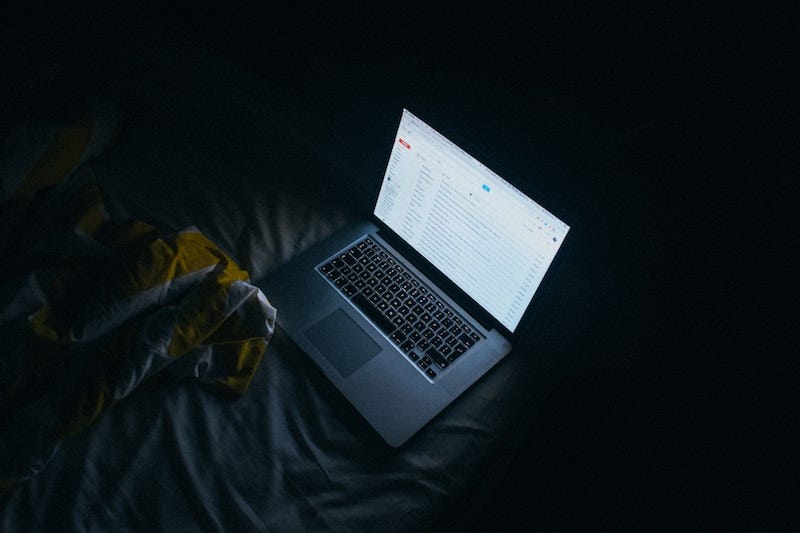We all have 24 hours in day. While a lot of us complain about that simply not being enough time, there are a few people who seem to magically achieve far more during this time than the rest of us. And, they manage to do it while still finding time for themselves.
What sets these uber successful people apart from the not-so-successful ones? It’s that they know how to make the most of their time, by focusing on getting things done.
Their productivity levels are out of this world because they don’t let distractions come in the way of their goals. They don’t just manage time, they manage themselves.
Having said that, boosting your productivity in order to get more done is not rocket science. It’s not a quality that’s reserved for the elite few. It can be done by you or by anyone with a bit of self-discipline.
Here are 5 common productivity mistakes that you should never make if you want to reach goals:
Mistake #1: Multitasking Instead of Focusing
Multitasking is not a smart move. Why? Because every time you do it, you force your brain to work harder than it should.
You may try to convince yourself that multitasking helps you get more done. But, the reality is that it has been scientifically proven to decrease productivity and increase mistakes.
You lose more than time when you multitask. You lose energy, focus and interest. If you want to be productive, you have to let go of the urge to do more than one thing at a time.
For example, reading email while you are writing an article may look harmless on the surface. But, that one tiny distraction is enough to break your flow. In addition to that, studies show that regaining lost attention and returning to a task takes an average of 23 minutes and 15 seconds.
So the next time you want to multitask, do yourself a favor and don’t.
Mistake #2: Not “Eating a Live Frog” First
What is the first thing you do after waking up? Well, according to Mark Twain, you should “eat a live frog first thing in the morning and nothing worse will happen to you the rest of the day.”

In other words, he’s suggesting that you should look at your to-do list and finish the worst task before doing anything else in the morning. That way, you’ll be able to pull through the day more easily.
When you start work, you may be tempted to begin with the easiest task on the list. It’s your mind’s way of tricking you into procrastinating on the most important task of the day.
According to behavioral scientist Dan Ariely, the first two hours of your day is when you are the most productive. This is when your energy levels are the highest and you’re the most alert. So it only makes sense to not waste these early hours.
As you progress through the day, your willpower starts to weaken. After all, it is a limited resource. As a result, this is why you have to take advantage of it when you can. If you don’t, then the task that you could have finished suddenly becomes impossible to even start.
Ariely suggests that one way to make sure you eat your frog is to plan what you want to accomplish in the morning the night before. When you’re clear about what needs to be done and how, you are less likely to procrastinate.
Mistake #3: Doing Everything Yourself
Let’s face it — there are only so many hours in a day. And you can only do so much, regardless of how talented or skilled you are. If you try to do everything yourself, you may end up not reaching your goal.
It’s crucial that you focus on only those tasks that nobody else can or should do. Everything else that can be delegated should be pulled off your to-do list.
By not delegating you’re losing invaluable energy. Also, there are high chances that you are spending too much time on things that are not high priority.
The question is: why don’t we delegate when it’s the right thing to do?
Many times, it’s due to the irrational fear of delegation. A fear that typically comes from the thinking that you are the only one capable of doing the job perfectly. Not doing something yourself feels downright risky.
However, when you actually hand over your tasks to experts or professionals, you’ll realize that this is far from the truth. You will get more efficient work done in shorter time.
Here are six basic steps to delegating your work the right way:
- Select the appropriate expert for the task
- Define what needs to be done and by when
- Spend time planning the task along with the chosen expert
- Establish an outcome that is both measurable and achievable
- Keep giving feedback at regular intervals
- Review the task upon completion
So whether it’s hiring a virtual assistant or outsourcing to some industry expert, when done appropriately, it always pays to delegate. Always.
Mistake #4: Browsing the Web
The Internet is a boon that quickly turns into a bane for someone who spends too much time browsing it. If you’re not careful, it’s easy to lose your precious work hours to huge time sinks such as Facebook and YouTube.

A research study conducted by the “Stop Procrastination” app found that social media is the number one cause of Internet procrastination.
However, the problem doesn’t end there. Sometimes spending too much time checking emails or reading unusual articles on Wikipedia can easily stop you from doing what you should be doing.
The easiest way to combat this unproductive habit is to simply disconnect from the net. No, you don’t need to unplug from the Internet for a year like this guy to see what happens. However, it does help if you are not connected to the World Wide Web when working on a particularly important task.
You can block out the Internet when working with the help of certain toolsthat are specifically designed to do so. Or you can simply unplug the wifi and get into your “work zone” minus any distractions.
Either way, if you’re not taking internet addiction seriously, you are doing more harm to your productivity than good.
Mistake #5: Overthinking
When it comes productivity, overthinking is a silent killer. It makes you feel like you are progressing, when in reality it’s only making it harder for you to take the right action.

Thanks to Google, you have an ocean of information to study before you take a decision. But, every time you open a new link to learn and analyze, you pull yourself closer to not taking any decision.
The fact of the matter is, overthinking leads to analysis paralysis. What this means, is that the analysis that is supposed to help you, confuses you to such an extent that it paralyzes you.
Psychologist Barry Schwartz calls this the “Paradox of Choice.” His findings indicate that, even though increased choice leads to achieving better results, it comes with a baggage of negative conditions such as anxiety, paralysis and indecision.
While focused thinking is an invaluable skill to have, overthinking on the other hand is one of the biggest hurdles between you and your goal.
Conclusion
Avoiding the above discussed 5 mistakes doesn’t guarantee that your productivity will shoot through the roof, because how productive you are depends on a number of factors.
However, by keeping these tips in mind and by applying them on a regular basis, you will see real world results. Period.
Want more tips to be more effective on the job? Get my Checklist for Success, with 40 actionable strategies to boost your career.
Originally published at Medium

